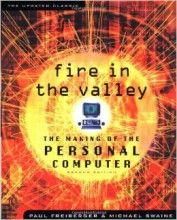GOP banks on Silicon Valley inroads

 California’s tech titans are giving the Republican Party a second look.
California’s tech titans are giving the Republican Party a second look.
Political and tech observers alike have agreed these are early days for a realignment of Silicon Valley voters. Nevertheless, the titans’ interest in GOP candidates and causes — and the corresponding dissatisfaction with the current Democratic administration in Washington — have created a stir in the fast-moving world of fundraising and interest group-driven electioneering.
Silicon Valley traditionally has been measured by its most outsized personalities, a habit that has now begun to work in the GOP’s favor. Facebook founder Mark Zuckerberg made a recent stir by hosting an event for New Jersey Gov. Chris Christie. Now, libertarian-leaning Silicon Valley heavyweights have started to make regular political news.
Bold names, big headlines
Though venture capitalist Tim Draper’s Six Californias initiative has run aground, his activism has powerfully reinforced the idea that leading tech figures have given up on the status quo.
In another striking example, leading entrepreneur David Welch rocked California with his victory in the Vergara case challenging teacher tenure protections. Now he has decided to “fund and coordinate” a Vergara-like suit brought by the New York City Parents’ Union.
Then there’s Napster founder Sean Parker, whose financial support for Democrats has given way to a tide of dollars for Republican candidates. As Politico reports, Parker’s fire hose of funds was aimed squarely at moderate-to-liberal Republicans, especially those fending off primary challenges like the one endured by Sen. Thad Cochran, R-Miss.
Those spending patterns cut against the grain of other Silicon Valley fixtures like Peter Thiel. The PayPal founder’s brand of entrepreneurial libertarianism has been associated more closely with insurgent figures like Sen. Rand Paul, R-Ky.
An ideological reshuffle
For California Republicans — and national Republicans who put racking up votes first — the changes have called to mind the old adage that beggars can’t be choosers. GOP officials have bemoaned the diminishing pool of swing voters in the Golden State, which has become a virtual one-party state.
The pressure has driven deep fissures into the California GOP, which has become sharply divided between pro-business social liberals and red-meat reform conservatives. Gubernatorial candidate Neel Kashkari dispatched with relative ease his primary challenger, Assemblyman Tim Donnelly, R-Twin Peaks. But doubts remain whether Kashkari’s candidacy against Gov. Jerry Brown could flip enough Democrats away from sticking with the incumbent.
Developments in Silicon Valley suggest time may at last be on Republicans’ side — with implications that go well beyond California. As the liberal analyst Peter Lawrence Kane put it, “The best replacement to fill a Tea Party-shaped hole in the conservative coalition is the tech industry, whose place in the Democratic fold is starting to grow uncomfortably awkward.” Kane noted a “natural” alliance between Silicon Valley and the GOP could “lead to a wholesale reconfiguration of the American political landscape. … The party has performed dramatic 180s before.”
Longtime Republican operators have positioned themselves to welcome that kind of change with open arms. Even insiders who have cultivated conservative bona fides, such as influential Republican National Committeeman Haley Barbour, made a point to speak well of Silicon Valley’s not-so-reformist billionaires. Talking to Politico, Barbour suggested Parker liked how Republicans “had a plan that was indicative of the kind of U.S. senator that Thad Cochran is — somebody who has represented all 3 million Mississippians with dignity and class.”
The more Silicon Valley money pours into Republican coffers, the more likely Republicans could be to hear that kind of exaggerated big-tent language.
On the other hand, few have underestimated the anti-corruption movement spearheaded by the likes of Sen. Paul and Peter Thiel. Although they have yet to amass the cash reserves of the big business wing of the party — and its sympathetic billionaires — the reform libertarians have developed important inroads of their own into the Washington establishment.
Paul has met privately with both Zuckerberg and Parker. In what could prove to be even more portentous an encounter, Grover Norquist, the enormously influential head of Americans for Tax Reform, returned from his first trip to the quasi-utopian Burning Man festival with glowing reviews of its spontaneous, free-form productivity. The festival is dedicated “to the spirit of community, art, self-expression and self-reliance.”
“A community that comes together with a minimum of ‘rules’ demands self-reliance – that everyone clean up after themselves and help thy neighbor,” Norquist wrote. “Some day I want to live 52 weeks a year in a state or city that acts like this. I want to attend a national political convention that advocates the wisdom of Burning Man.”
With an establishment attitude like that, after so many years in the wilderness, the fortunes of California Republicans may change sooner than once imagined.
Related Articles
In San Diego, is libertarian dream alive, stalled — or dead?
Nov. 8, 2012 By Chris Reed San Diegans had an extremely unusual choice for mayor Tuesday, picking between a gay
Card Check Blazing Through Assembly
APRIL 7, 2011 By KATY GRIMES With a sucker punch from the Assembly Speaker’s office, the public notice rule for
State finances: LAO’s own report on CalSTRS demolishes LAO’s happy talk
I’m still struggling to make sense of Legislative Analyst Mac Taylor’s bizarrely upbeat report last month on state finances that



